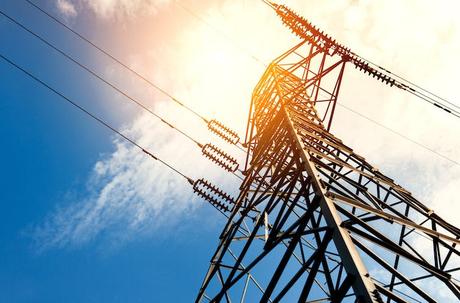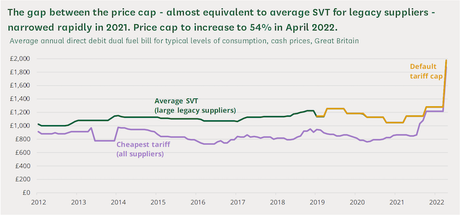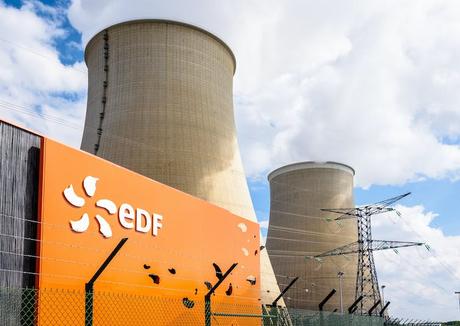Energy crisis: why French households are largely protected from soaring costs while British families struggle
 Improvements to the GB power market could help tackle the coming energy crisis. Bohbeh / Shutterstock
Improvements to the GB power market could help tackle the coming energy crisis. Bohbeh / Shutterstock
Renaud Foucart, Lancaster University
British households are bracing for a winter of massive energy price increases. The average annual bill is forecast to rise above £4,000, which is more than three times what Britons were paying just 12 months ago.
French households, meanwhile, will barely see their costs increase. Their government has frozen gas prices and limited the increase of the regulated price of electricity to an annual 4%. The total impact of the cost of living squeeze from higher energy prices this year will remain well below 5% of consumption for all French households. For the poorest 20% of UK households, it could be more than 15%.
The difference between two neighbouring countries with interconnected electricity grids is staggering. As part of my ongoing research into market regulation and the systems used to allocate commodities such as electricity, I look at how economic models can help us to understand policy problems. Most recently, I've been researching the French power market and comparing it to other models such as those of the UK.
But while the GB power market is certainly more efficient when it comes to energy consumption and production, the upcoming crisis shows it is far from perfect. To ensure all homes are heated this winter, the government faces a bold choice: sending billions in cash to households or learning some lessons from the neighbouring French market - even if it means sacrificing some efficiency.
Great Britain: free market, marginal pricing
UK energy regulator Ofgem determines the maximum price an energy provider can charge households for the gas and electricity they use. This price cap, designed to protect consumers from unfair rises, should also enable suppliers to buy energy on the wholesale market at cheaper prices to satisfy contracts with consumers and still make a profit.
Indeed, the wholesale price of energy is the main factor Ofgem uses to calculate the cap. This price varies depending on the type of power being purchased.
Under what's called a marginal price model, cheaper sources such as renewables and nuclear are used to satisfy demand first. More expensive forms of power such as natural gas are brought in as demand increases, but demand is nearly always high enough to encourage gas generation.
And in free markets such as this, the most expensive unit consumed determines the price everyone pays. Since Russia invaded Ukraine in February 2022, the price of gas in the GB market has soared to more than six times prices a year ago.
Unfortunately, the price cap model has meant that recent soaring wholesale gas prices have affected both consumers and suppliers. While oil and gas producers report record profits due to rapidly rising prices, dozens of suppliers have gone bust paying these prices.
To reduce the risk of further supplier bankruptcies, Ofgem will now update the cap on a quarterly basis to enable suppliers to raise retail prices more in line with wholesale prices.
But recent rises have affected consumers. In the past, retail rates could be fixed well below the cap, but increased gas costs have pushed power prices up so much that these deals have disappeared.
Average annual fuel bills, 2012-2022

Capping wholesale prices is not a solution. To avoid blackouts, energy companies must either produce or import every single unit demanded by their consumers. If producers cannot recoup the cost of production of the most expensive unit of energy, they will simply not deliver it.
High energy prices and the hope of future profits encourage investment in production. The UK, for instance, is consistently ranked as one of the most attractive countries for renewable energy development. Even so, the neighbouring French market is currently doing much better to protect its consumers.
France: nationalised production, price subsidies

Last January, the French government also asked EDF to increase the quantity of discounted electricity it offers to help French households cope with rising energy prices. Together with cuts in fuel taxes, this will ensure the French regulated price barely increases this year.
Up until now, an alternative strategy has been to offer unconditional cash transfers, such as rebates on council tax and energy bills. Pursuing this strategy over the winter would preserve the efficiency of the GB market, but would be politically difficult and expensive. The IMF estimates the cash needed to compensate the 40% poorer household to be around 1.5% of GDP or more than £30 billion.
The GB power market is generally an ideal way to allocate consumption and production of electricity. But efficiency is not everything. A rich country that cannot warm its homes has failed its citizens and so further action is needed to ensure this does not happen this winter.

Renaud Foucart, Senior Lecturer in Economics, Lancaster University Management School, Lancaster University
This article is republished from The Conversation under a Creative Commons license. Read the original article.

